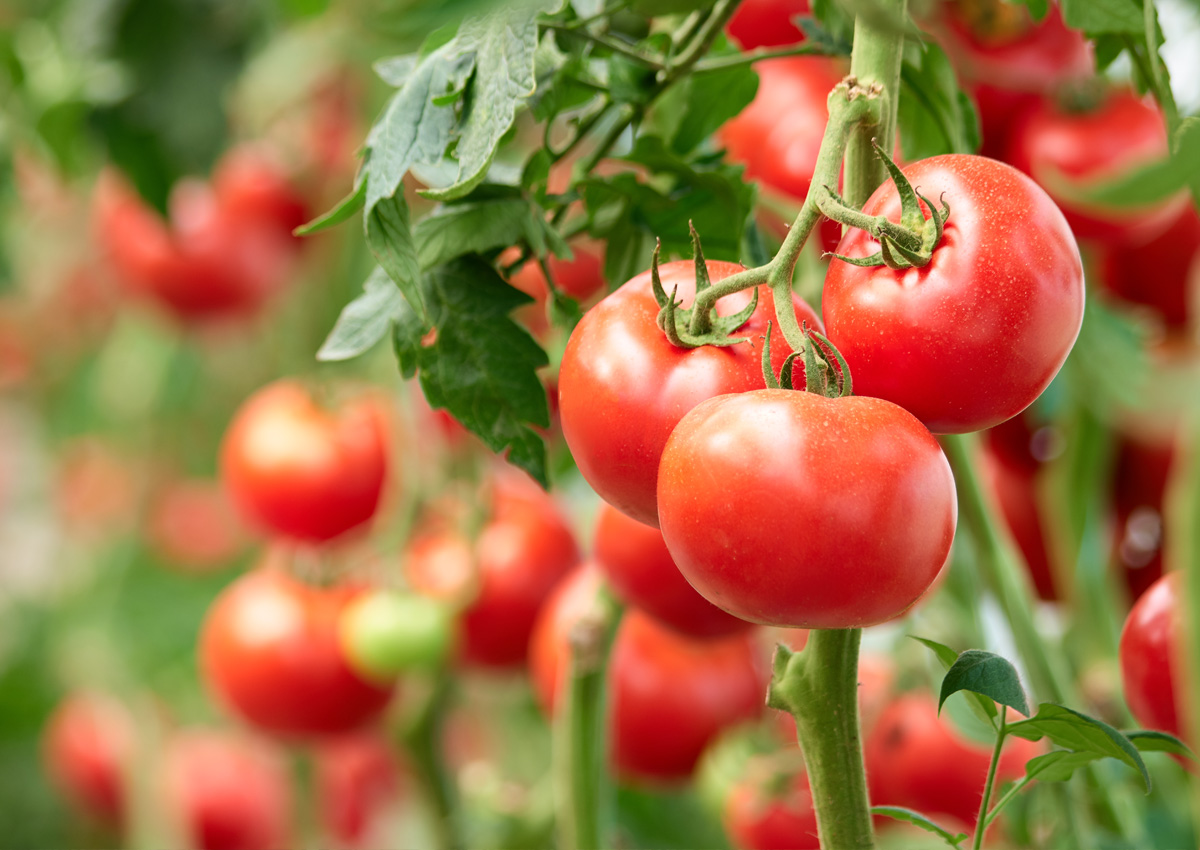
Researchers Identify Genes to Help Fruit Adapt to Droughts
December 7, 2022| |
Researchers from the Boyce Thompson Institute (BTI) and Cornell University have completed the first study that provides a comprehensive picture of changes in gene expression in response to water stress in tomatoes and identified genes that could help plant breeders develop fruit that can cope with drought conditions.
Led by BTI Assistant Professor Carmen Catalá, who is also a research associate in the School of Integrative Plant Science at Cornell and Philippe Nicolas, a postdoctoral researcher in Catalá's lab, the team identified a number of genes that are involved in water stress response in tomatoes. “We can now begin to select candidate genes that could help breeders develop fruit that can adapt to drought conditions, and not just tomatoes but also grapes, apples, and fleshy fruit in general,” said Catalá.
The research team looked at gene expression in tomato leaves and six fruit organs, including pericarp, placenta, septum, columella, jelly, and seeds, at two different periods (growing and ripe fruit) and under four different water stress conditions (none, mild, intermediate, and strong). They found that each of the fruit organ tissues changed in unique ways over time. According to Catalá, less than 1% of the expressed genes affected by water stress were shared among all six fruit tissues, and more than 50% of the affected genes were specific to a single tissue. They also found that mild drought brought some positive effects. For example, water stress increases the amount of lycopene in ripe tomatoes. Water-stressed fruit also had higher levels of starch biosynthesis, which could yield sweeter tomatoes.
For more details, read the article in BTI News.
| |
You might also like:
- Egyptian Scientists Develop Drought-Tolerant Tomatoes
- Chile Develops Drought, Saline-Tolerant Tomato, Kiwi
- Pocket K No. 32: Biotechnology for the Development of Drought Tolerant Crops
Biotech Updates is a weekly newsletter of ISAAA, a not-for-profit organization. It is distributed for free to over 22,000 subscribers worldwide to inform them about the key developments in biosciences, especially in biotechnology. Your support will help us in our mission to feed the world with knowledge. You can help by donating as little as $10.
-
See more articles:
-
News from Around the World
- Global Leaders Tackle Conservation at UN Biodiversity Conference
- ARS Introduces Improved Winter Peas for Food Use
- CIMMYT Study Says Breeding New Crops Must Adapt to Climate Change
- Researchers Identify Genes to Help Fruit Adapt to Droughts
- Australia's Gene Regulator OGTR Invites Comments on Field Trial of GM Perennial Ryegrass
- Science Communication Expert Hailed as One of the Filipino Faces of Biotechnology
-
Research Highlights
- New Method Produces GM Measles Virus Using Only Two Components
- Climate Resilience Linked to Lignin Chemistry in Plants
-
Read the latest: - Biotech Updates (January 28, 2026)
- Gene Editing Supplement (January 28, 2026)
- Gene Drive Supplement (February 22, 2023)
-
Subscribe to BU: - Share
- Tweet

